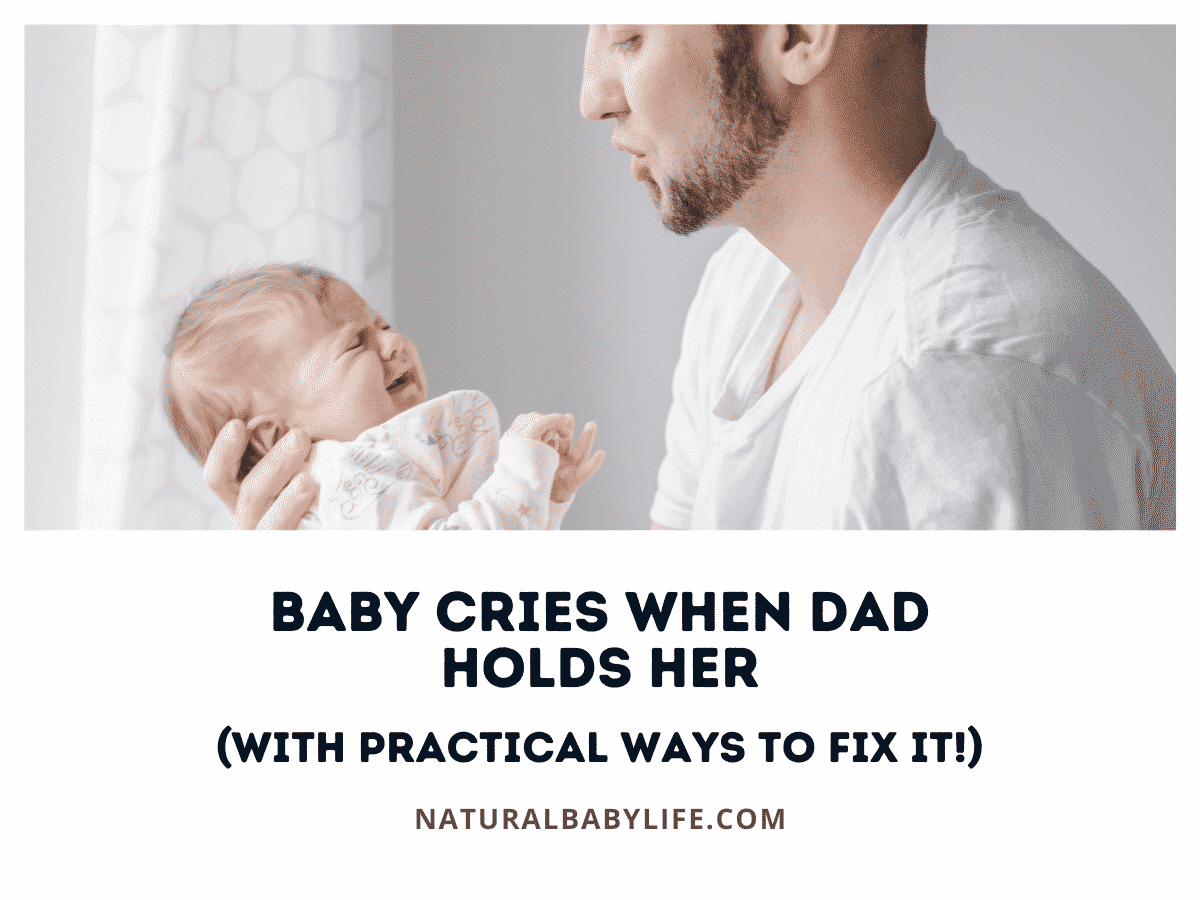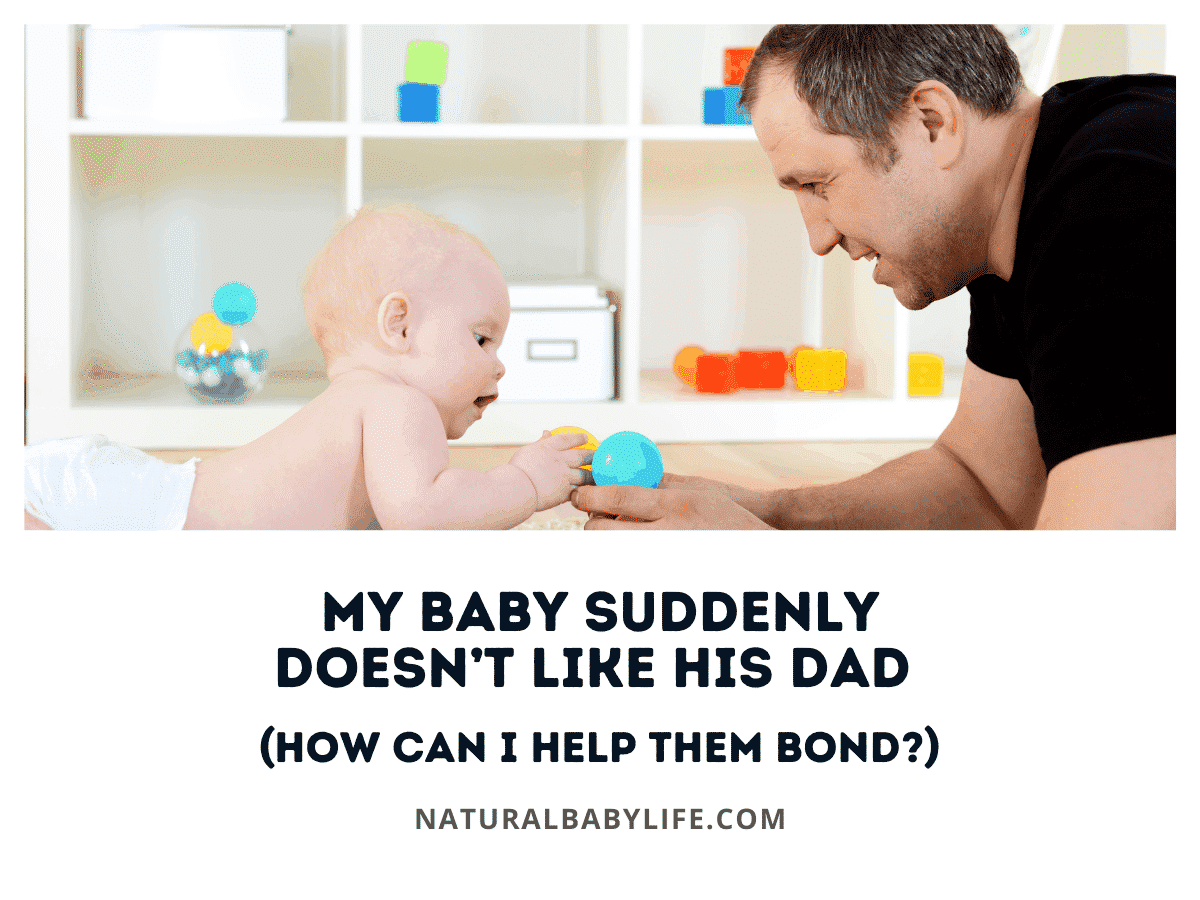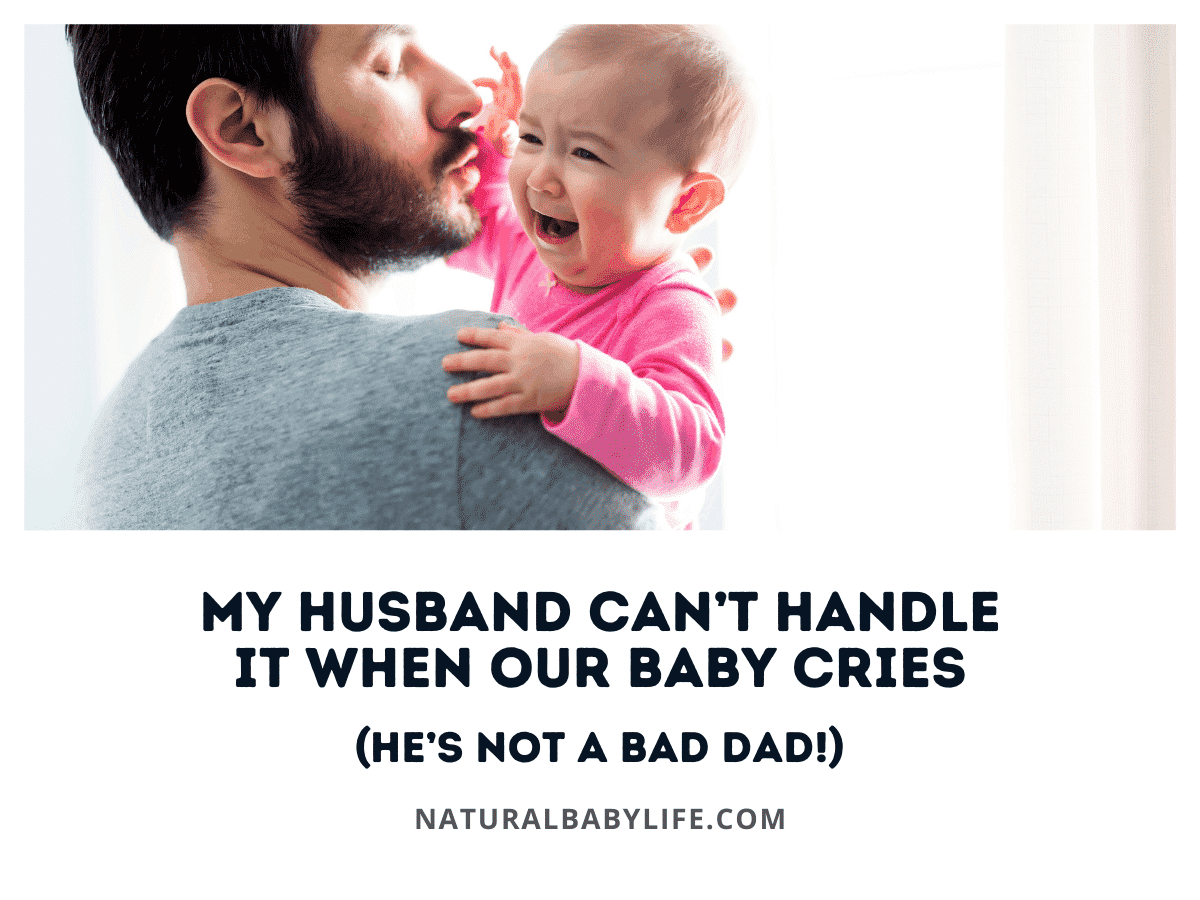As a mother, you probably love having a baby who snuggles and wants to stay close to you. But every mom needs a break, even just to take a shower or do errands. But what do you do when your baby cries when dad holds her?
It’s not uncommon for babies to prefer to stay with their mom instead of going to their loving aunts, uncles, grandparents, or even dad. If your baby cries whenever dad holds them, it’s likely to be a temporary problem. To develop the father-baby bond, share feeding duties, use scent cues, experiment with different times, and focus on physical contact.
Keep reading to find out why babies tend to prefer mom over anyone else, what it takes to create a bond between dad and baby, and ways to get your baby to stop crying when dad holds her.
Table of Contents
Why do babies cry when Dad holds them?
The most important thing to know is that babies don’t typically cry because they don’t want Dad – it’s really that they want to stay close to Mom.
Babies cry because they want what is most familiar and comfortable, and often, that is Mom. There are some scientific reasons why babies prefer Mom over Dad or other caregivers, including early bonding in utero, pheromones, and lack of object permanence. It is totally normal for newborns to prefer Mom over Dad.
Usually, babies who cry with Dad will also cry with grandparents, babysitters, siblings, or other caregivers. It is so essential for dads not to take their baby’s reluctance personally – it’s nature’s way of helping babies feel safe.
With a little help, they can learn to feel safe with Dad, too!
Why do babies cry when someone new holds them?
Babies can hear and smell in the third trimester, and often the mother is the primary caregiver in the first moments after birth, so babies tend to latch onto their mothers immediately.
Additionally, because she hasn’t developed object permanence when a baby doesn’t see her mother, she thinks Mom is gone and not coming back, which causes great anxiety. Fortunately, object permanence develops somewhere between 4 and 8 months of age, so babies will soon learn that being handed to Dad doesn’t mean Mom is leaving forever.
Because babies are hard-wired to prefer Mom, they will likely cry when others try to hold them. They are super attached to Mom from the womb and don’t realize that when she leaves, she will come back. Helping babies trust other caregivers, including Dad, may take some effort.
A baby’s instinct to stay close to Mom is very strong, but with practice and training, your baby will learn that Dad is a safe and loving caregiver.
Stages of baby attachment
Babies are biologically driven to bond with and rely on their primary caregiver.
During the first six weeks of the baby’s life, they start learning who acts as their primary caregiver. At this point, babies are typically satisfied being cared for by anyone. But, assuming the mom responds to the baby’s cues, the mother quickly solidifies herself as the baby’s number one.
Between six weeks and six months, the baby’s attachment to the mother begins to solidify as their needs are met. As the baby develops social referencing skills, the mother can usually soothe the baby easier than other adults and make the baby smile more. So, when your 3-month-old baby cries with dad, it’s just an early exhibition of very instinctual bonding.
At six months, the full-blown attachment and accompanying separation anxiety set in. Infants will show a clear preference for the primary caregiver and resist being separated. You can expect this to last until the baby is 18 to 24 months old.
At 24 months, babies begin forming reciprocal relationships, meaning that form relationships with more caregivers. At this time, babies begin to understand that being separated from mom isn’t a matter of life and death and that others can adequately care for them.
Will my baby ever get attached to Dad?
Since your baby is wired to prefer you as her caregiver, you might think it easier to just take care of things yourself. However, it is important for your baby to attach to Dad, too, as there are many benefits of father-baby bonding, including improved mental and physical health for the baby and less stress for Mom and Dad.
If you and Dad put in the time and effort, she will bond with him and ultimately accept him as a caregiver and loving parent. It is good to start the attachment process sooner rather than later, but even if your older baby cries with Dad, it is never too late to start.
Here are some suggestions to help with the Dad-baby bonding process!
How to get your baby to stop crying when dad holds her
From personal experience, I know how frustrating it can be when your baby only wants you. It can also be upsetting to Dad when the baby cries every time he holds her.
After lots of research, I have discovered some tried-and-true tricks for helping your baby bond with her Dad so they can enjoy their time together and you can take a much-needed break.
These are the best ways to get babies to stop crying when Dad is holding them:
- Plan ahead and practice
- Share feeding duties
- Use scent cues
- Try different times
- Try close physical contact
Plan ahead and practice
If you want your baby to bond with Dad and stop crying when he holds her, it is a good idea to make a plan and practice often.
Whether you decide to focus on scent cues, timing, babywearing, or any other technique to improve attachment, it is important to be consistent and follow through.
Start small, with Dad taking the baby for just a few minutes at a time with you nearby, where the baby can see and smell you. Frequent practice will help the baby trust both parents and allow for more interaction with Dad.
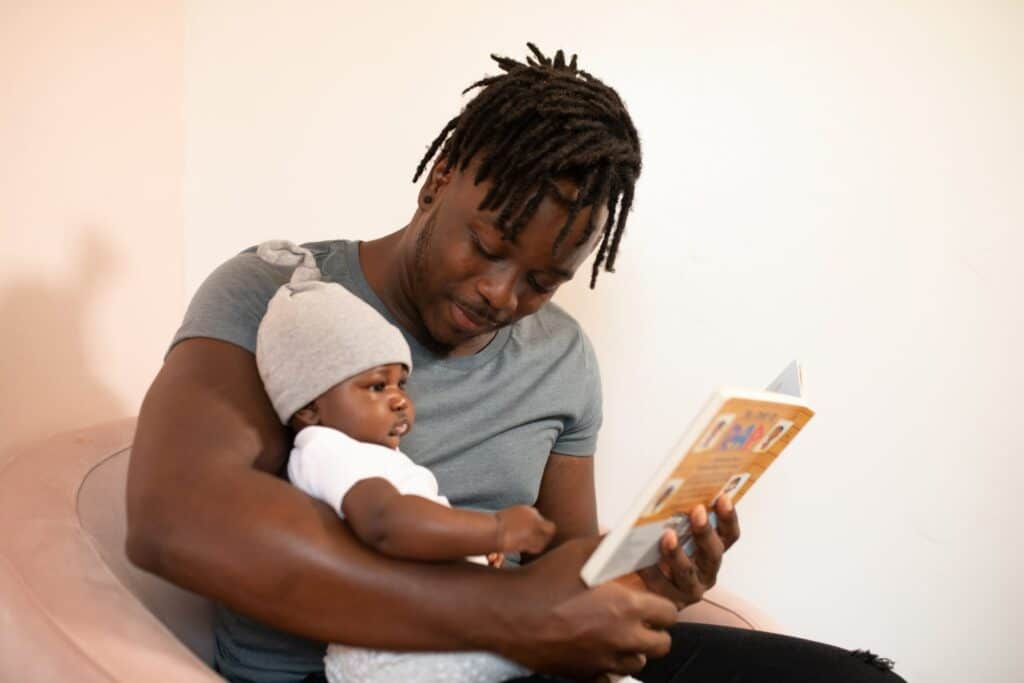
Share feeding duties
One of the primary reasons the baby bonds early and strongly with Mom is that she is typically the source of food.
Both breastfed and bottle-fed babies learn early on that Mom most often provides comfort in the form of milk. If you want your baby to bond with Dad, start involving him in the feeding process.
If you are breastfeeding, Dad can sit nearby, talking softly and maybe placing a hand on the baby to build an association between him and the comfort of feeding. If you are bottle-feeding, reverse roles, with him holding the bottle and baby while you sit, and provide comfort and reassurance.
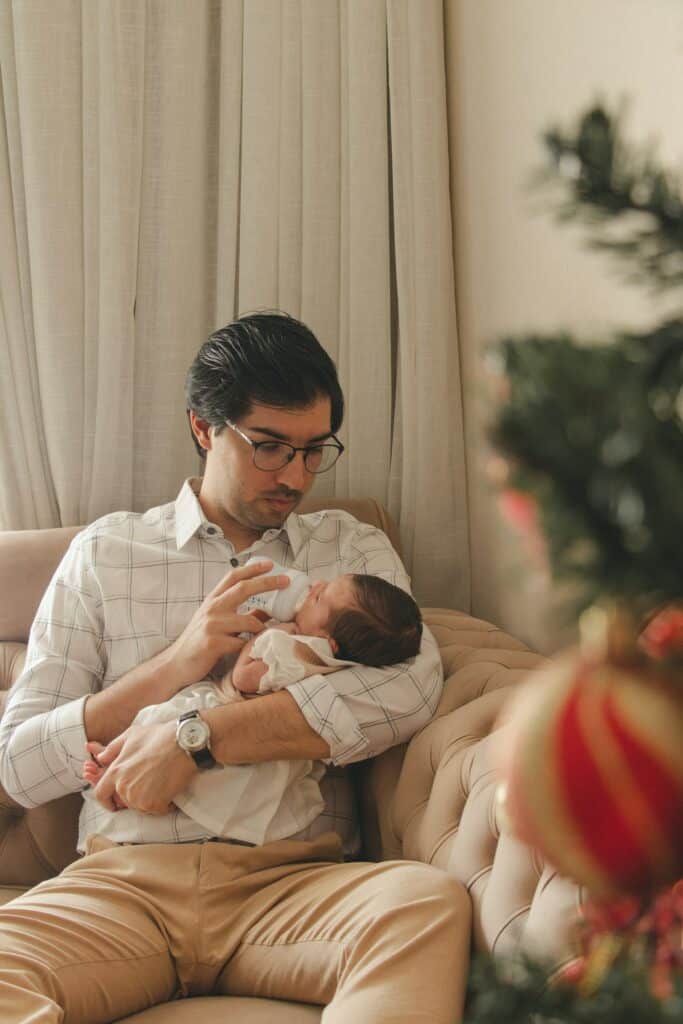
Use scent cues
Studies have shown that even in the first few days after birth, a baby can recognize her mother’s scent.
Since Mom is associated with food and comfort, your baby may calm down just by smelling your scent. If you want Dad to hold the baby without her crying, try working with scents to comfort her.
Have Dad wear one of your clothing items or use a blanket you sleep with. Or, if you really want to take things gradually, use something with Dad’s scent on it when you feed your baby or hold her so she can get used to his smell and associate it with comfort.
Try different times
Often, fathers who work outside the home may return home in the evening. Unfortunately, this may coincide with the dreaded witching hour for babies, the time of day when they become most fussy.
If you are home with your baby during the day, you may be tempted to hand her off to Dad when he arrives home. However, this is probably not ideal if it is your baby’s fussy time.
Focus on promoting fun and laughter with Dad to make a positive association.
Try having Dad get up with your baby in the early morning and do an early feeding. Or have him play with the baby when she is happy and alert. If weekends are best, Dad could take the baby on a walk in the stroller or take her to visit a friend.
Other tips and tricks when baby only wants mom
The benefits of skin-to-skin contact are well-documented.
While it is great to begin in the newborn stage, even older babies will enjoy lying skin-to-skin on Dad’s chest. Simply have Dad remove his shirt and have the baby in just a diaper, and allow them to lie together. Use a blanket if it is chilly! Again, start with just a few minutes if needed, and increase as your baby learns to enjoy the time with Dad.
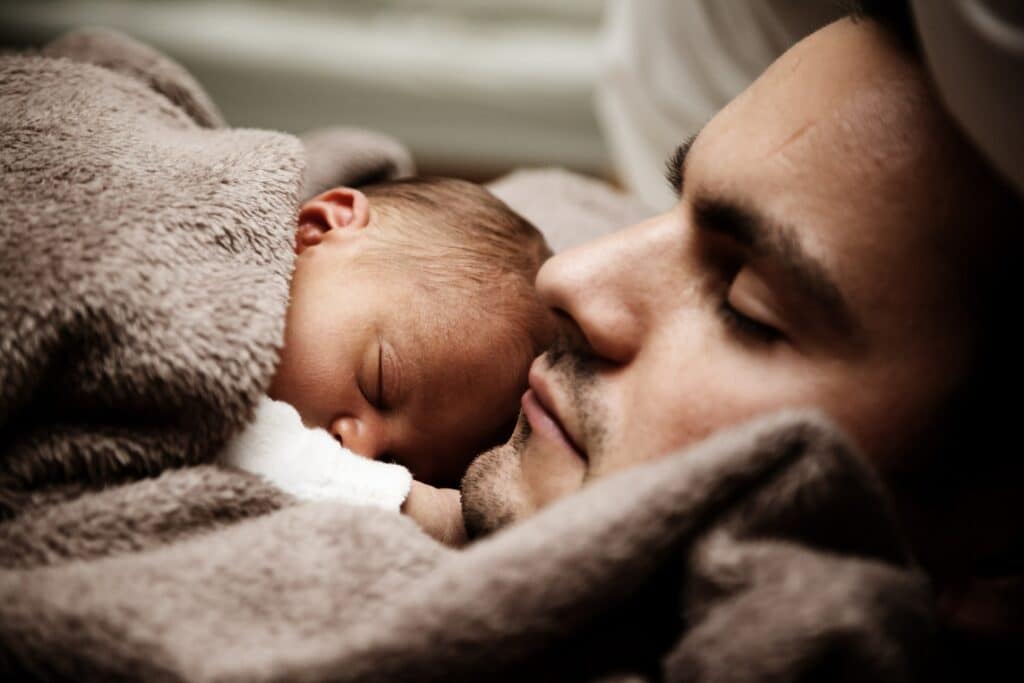
If skin-to-skin doesn’t work because your baby is older and more active, another option for close physical contact is babywearing. There are lots of benefits of babywearing, including freeing up your hands, but one of the greatest benefits is the bonding that babywearing provides.
Dad can use a sling like the Moby to keep infants close around the house, while he may want to use a more structured carrier for adventures with older babies, like the Tula.
Whatever techniques you use or combine, rest assured that your baby will bond with Dad and will not always cry when he holds her. It may take some time and patience, but if you plan and practice and implement some strategies, your baby and her Dad will form a strong attachment.
| Image | Title | Price | Prime | Buy |
|---|---|---|---|---|
 | Moby Wrap Baby Carrier | PrimeEligible | Check the price on Amazon! | |
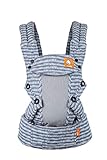 | Baby Tula Coast Explore Mesh Baby Carrier | PrimeEligible | Check the price on Amazon! |
Product prices and availability are accurate as of the date/time indicated and are subject to change. Any price and availability information displayed on [relevant Amazon Site(s), as applicable] at the time of purchase will apply to the purchase of this product.
Prices pulled from the Amazon Product Advertising API on:
